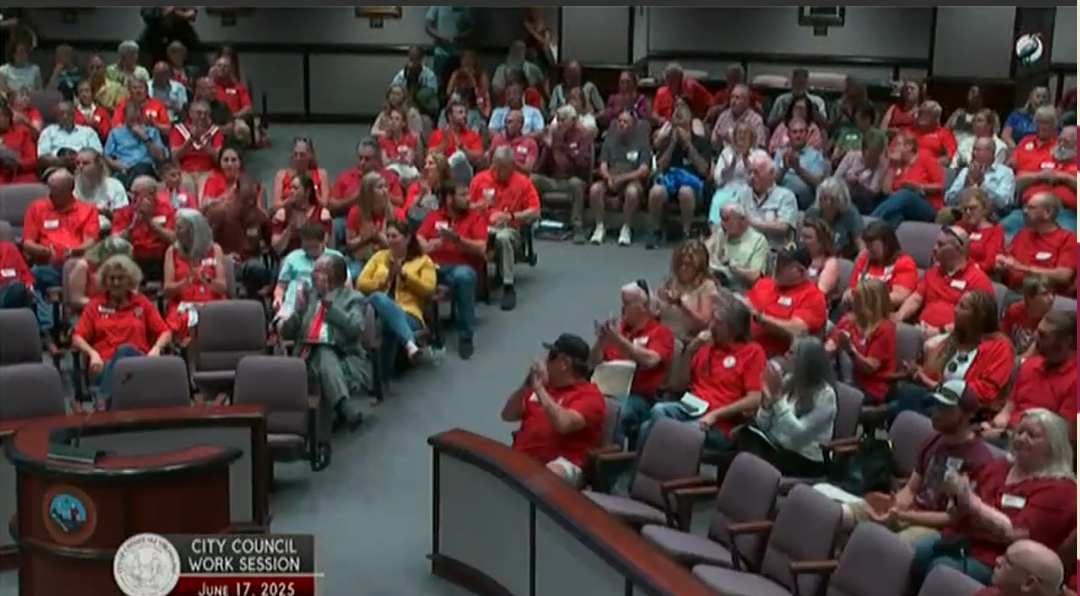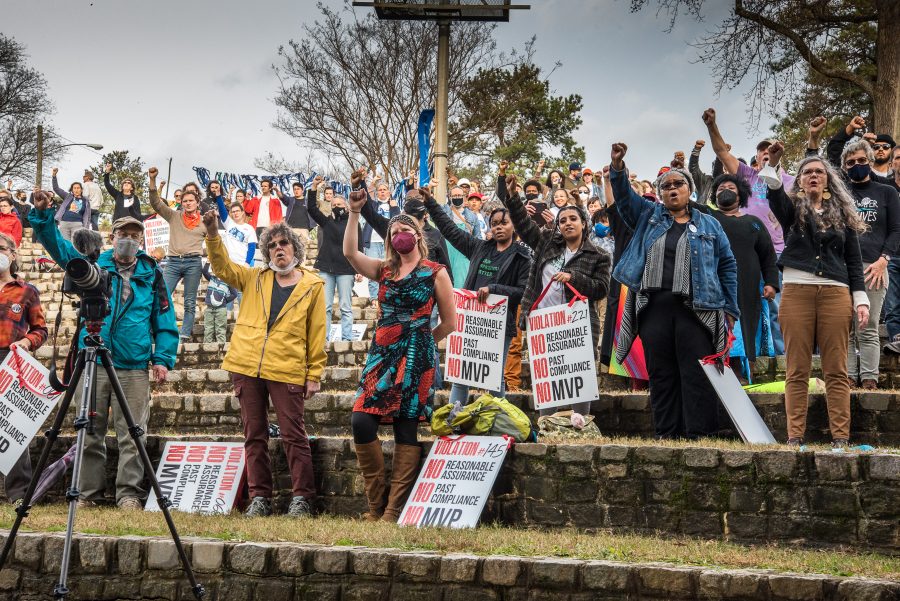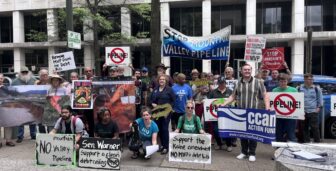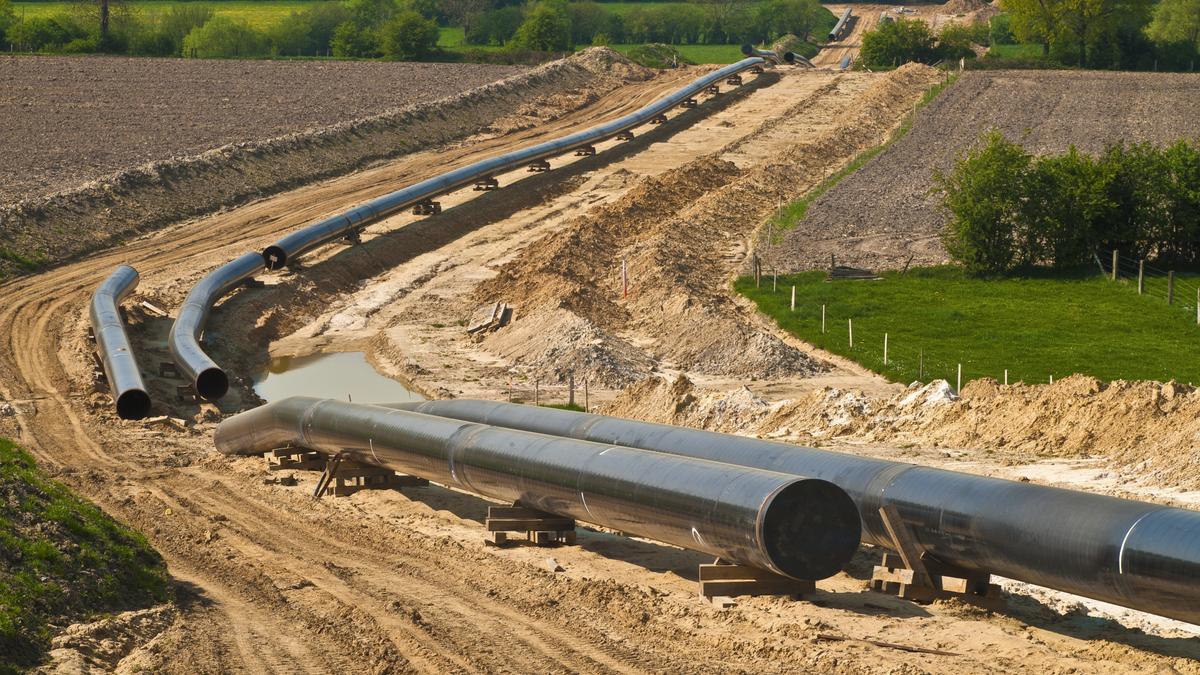Council vote marks major win for environmental justice and public health as city rejects plans to locate polluting facilities in vulnerable neighborhoods
CHESAPEAKE, VA – In a landmark decision for environmental justice and community health, the Chesapeake City Council voted Tuesday night to deny a sweeping rezoning request from Virginia Natural Gas (VNG) that would have converted VNG properties to industrial use, paving the way for more polluting industry in the area. This decisive rejection is a major win for residents and a clear rebuke of the proposed compressor station, which would have posed serious risks to local residential neighborhoods. The vote follows a concerted advocacy campaign from Eva Gardens and Crestwood civic leagues, Chesapeake residents, and environmental groups, who raised urgent concerns about pollution, safety, and the disproportionate burden placed on already disadvantaged communities.
The proposed Chesapeake Compressor Station would have pumped gas through multiple pipelines – such as the Virginia Reliability Pipeline and the Southside Connector Pipeline– threatening neighborhoods including Georgetown, Gilmerton, Crestwood, Eva Gardens, Belvin Heights, and the Westover Trailer Mobile community. Georgetown residents have tirelessly advocated against the Southside Connector pipeline, raising concerns about pollution, safety, and the disproportionate burden placed on already disadvantaged communities.
Compressor stations are known sources of air pollutants and greenhouse gases — including methane, volatile organic compounds, and carcinogens like benzene — that degrade air quality, harm health, and contribute to climate change. The constant noise and risk of leaks, fires, or explosions make these facilities especially dangerous in densely populated or vulnerable communities. Tuesday night’s meeting also saw the council chambers packed with community members who spoke out forcefully against the first large data center in Hampton Roads, citing concerns about environmental impacts and threats to local quality of life. Residents made it clear that they do not want their neighborhoods to become dumping grounds for a “dirty data center” that fuels climate change without requirements to run on clean energy.
Tuesday’s vote is a resounding affirmation of the community’s right to clean air, safety, and meaningful participation in decisions that affect their future. As environmental protections are under attack, the city council’s decision shows local leaders are listening to residents and prioritizing environmental justice and the health and well-being of our communities.
In reaction to the City Council decision, Chesapeake residents and advocates released the following statements:
“This is a win for humanity, health, environmental justice, and a prosperous life for generations to come,” said Joseph Davis, Eva Gardens Civic League’s President. “This will allow our community to avoid exposure to daily toxic pollutants, noise, and volatile organic compounds that lower air quality, which are linked to asthma, heart disease, diabetes, lung disease (COPD), and cancer. By voting down the compressor project and the M1 light industry application, we would not add any more toxic pollutants and chemical dispersion within our communities, daycares, and schools. I was happy to see City Council Members value their citizens’ humanity, health, and well-being for long lives.”
“As a resident of Eva Gardens, I am happy that the city council acknowledged the possible dangers associated with VNG’s request and voted against their hazardous proposal,” said Sarah Eason Williams, Resident of Eva Gardens. “Research clearly shows the harmful effects of compressor stations on the environment and human health. The neighborhood owes a debt of gratitude to the diligent efforts of Mr. Joseph and Mrs. Cheryl Davis, the leaders of our civic league, as well as others who were in attendance.”
“The Chesapeake City Council heard the people and delivered a win for generations when they denied Virginia Natural Gas’ rezoning application to build two compressor units in the city that would disproportionately impact marginalized communities. The value of this victory cannot be overstated since it was crucial to the buildout of the Virginia Reliability Project (a massive fracked gas pipeline), essentially rendering the pipeline project dead,” said Lynn Godfrey, Environmental Justice Community Leader.
“The city council’s decision to reject the compressor station and data center sends a clear message: no community should be a sacrifice zone for polluting industries,” said Leianis Gunn, Hampton Roads Organizer at Chesapeake Climate Action Network. “This victory belongs to the people of Chesapeake who stood up for their health, safety, and future. Environmental justice means no single neighborhood bears more than its share of pollution. Chesapeake took a bold step towards that vision.”
# # #
Chesapeake Climate Action Network is the first grassroots organization dedicated exclusively to raising awareness about the impacts and solutions associated with global warming in the Chesapeake Bay region. Founded in 2002, CCAN has been at the center of the fight for clean energy and wise climate policy in Maryland, Virginia, and Washington, DC.








